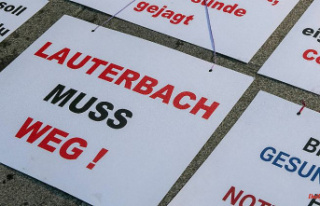The reaction of many Russians to the defeat of the Russian army in Cherson is resignation, says Moscow-based political scientist Jens Siegert. For some, this is linked to the belief in the state's claims that the retreat was only a straightening of the front. For the others, it is a resignation that sees the withdrawal as a prelude to further defeats by the Russian army. However, the bad mood among the people has not been able to harm Putin so far. It is possible "that he can even benefit from the apocalyptic atmosphere".
ntv.de: How did the Russian public react to the withdrawal of the Russian army from Cherson?
Jens Siegert: That depends on what you mean by the Russian public. All the people who keep declaring that what the Kremlin is doing is right, of course, essentially passed on the official version. If you talk to Russians in everyday life, there are mainly two reactions. One is a kind of resignation, because something like this has been expected for a long time, perhaps combined with the belief that the official version is correct.
The version of the "regrouping" of troops?
Yes, that the withdrawal was a kind of front straightening that doesn't change anything in the further course of the war.
And the second reaction you encounter?
She is also resigned, but sees the capture of Cherson by the Ukraine as a prelude to further defeats by the Russian army, and even defeat in the war in general.
Then the withdrawal in Russia will be perceived as a disgrace to the army?
Yes, that is without question. Some try to talk themselves into it a little. Then it is said that this is just a snapshot, soon all the mobilized soldiers will come to the front, then things will get really serious. But even among Russians, who support Putin in principle, there is an increasing, almost apocalyptic mood that everything is going down the drain - even if they wouldn't say so. But the mood is really bad.
What does this mean for Putin? According to figures from the Russian Levada Center, he has 79 percent approval of the Russian population, but at the same time 88 percent of Russians are concerned about developments in Ukraine, although 73 percent say they "the actions of the Russian army in of Ukraine".
The interesting thing is that support for Putin is increasingly decoupled from support for war. At least so far, the bad mood has not affected Putin. This is something that runs through Russian history: the tsar is not to blame for all the misery, it is the fault of the evil boyars, the big landowners, under whom the poor people suffer. The military are stealing from the people, the officials are incompetent - and Putin has to put everything right. It is therefore possible that he can even benefit from the apocalyptic mood: If everything goes down the drain, then Putin is the last stop. Losing him too would be too terrible for most Russians. This is a psychological protective function: If you also lose trust in Putin, one could interpret this feeling as not only Russia losing the war, but maybe also Crimea, which would be much worse for most Russians than losing Kherson or from Donetsk and Luhansk. Then, so the idea goes, even Russia could no longer exist at some point.
There is a view that Putin must win the war in order to remain in office. Do you think that's likely?
That is a question that cannot be answered. Of course, there is a lot to be said for the thesis that there are consequences after a military defeat. There are many examples in Russian history of revolutions or revolutionary upheavals following a lost war. But there are just as many counterexamples. It may well be that this mechanism of clinging to Putin prevails - that Putin is the last straw to prevent everything from falling apart. But you can't predict that.
Hubertus Volmer spoke to Jens Siegert












